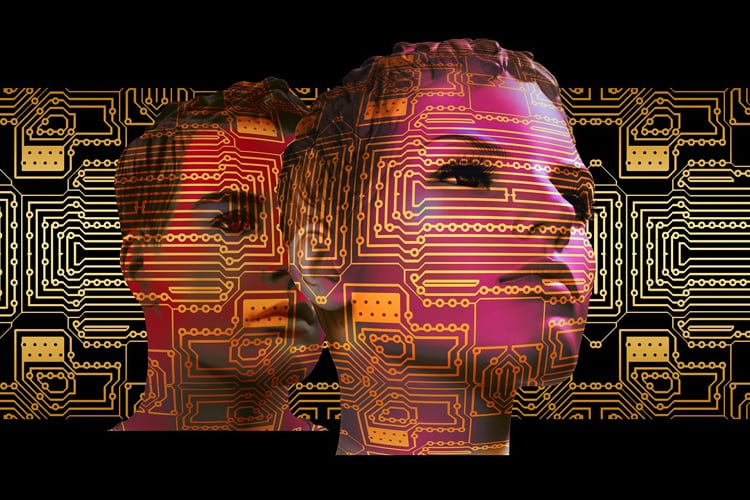https://www.paradox.ai/Since the dawn of futuristic TV shows like “The Jetsons” and robot-centric movies such as “The Terminator” and “I, Robot,” society has largely become enthralled by advanced technologies. Self-driving cars, robotic engineering, and more commonly, artificial intelligence, have become the most highlighted product that companies pitch to consumers and investors.
“AI-powered,” “driven by AI,” and “employing AI technology” are all taglines attached to products in the tech sector, and increasingly so, over the past five years. In fact, according to a study by PitchBook, the number of venture capital deals in AI and machine learning in 2017 was 12 times the amount in 2008. The value of the 643 investment deals amounted to roughly $6 billion in 2017, compared to just $250 million in 2008.
Because “artificial intelligence” has a loose definition, tech companies are able to include it in the description of their products or services with minimal scrutiny. This has consequently created a clouded understanding of artificial intelligence for both average consumers and investors.
“Like any buzzword in technology, companies will often grasp onto specific innovations and use it for marketing hype,” said Steven Zylstra, President & CEO of the Arizona Tech Council. “When a technology is relatively early, or the idea is abstract, the general public knows very little about it and companies can get away with it. It’s unfortunate because I think it minimizes those companies that have legitimate and compelling AI-powered applications. I also don’t believe that these companies are being completely untruthful, rather they tend to embellish how much AI plays a role in their solutions.”
This begs the question: what exactly is artificial intelligence, and how can consumers and investors discern when a company is legitimately employing it?
Zylstra describes AI as the simulation of human intelligence processes by machines – especially computer systems. “These processes include learning (the acquisition of information and rules for using the information), reasoning (using rules to reach approximate or definite conclusions), and self-correction.”
In simpler terms, according to Zylstra, AI is considered the development of computer systems and programs that carry out tasks that usually require human interaction. This includes, but is not limited to: facial recognition, decision-making, and language translation.
Devin Coldewey, in an article for TechCrunch, goes a step further and distinguishes “weak” versus “strong” artificial intelligence. Coldewey discusses what many experts believe to be “weak” artificial intelligence – that is, the embellished version of AI.
“On one side, there are those who say that no matter how complex and broad an AI construct is, it can never do more than emulate the minds that created it — it can never advance beyond its mechanistic nature,” Coldewey writes. “Even within these limitations, it may be capable of accomplishing incredible things, but in the end it is nothing more than a fantastically powerful piece of software.”
On the other hand, Coldewey describes “strong” AI as that which has capabilities “essentially indistinguishable from a human mind.” Moreover, if artificial intelligence is strong enough, it will be able to single-handedly develop itself to be stronger and more capable than its original design. As an overdramatized cultural example, this is what the robots from “I, Robot” or any other robot-uprising movies represent.
“There are many functions of software development that get confused with artificial intelligence,” Zylstra said. “For example, decision trees are the foundation for AI because they outline how the technology makes decisions, but they’re not fully AI-realized. It’s easy to see how it could be confusing.”
Nevertheless, there are many companies who legitimately utilize artificial intelligence, including tech giants like Google, Apple, and Amazon. Zylstra highlights these companies’ voice assistance technologies – Google Voice, Siri, and Alexa – as some of the most common forms of artificial intelligence. In addition, many Arizona-based companies employ artificial intelligence, Zylstra said.
“Digital Air Strike has created an intelligent messaging platform using AI to help their clients assist customers over chat on websites and social media to move them further down the sales funnel. The platform’s chatbots use AI to have an intelligent text conversation with customers that’s hard to distinguish from a human being,” Zylstra explains. “Paradox has created an AI platform for recruiting which acts as a personal assistant to a company’s HR team. It can perform tasks such as capturing candidate information, scheduling interviews and answering candidate questions about the company.”
There’s no question that artificial intelligence is integral to the advancement of society; in many ways, the technology’s potential makes it that much stronger of a marketing buzzword. However, it’s important for both consumers and investors to recognize when a company might be stretching the capabilities of their product or service; otherwise, the ones truly making waves in AI could be overlooked.
This story was originally published at Chamber Business News.




